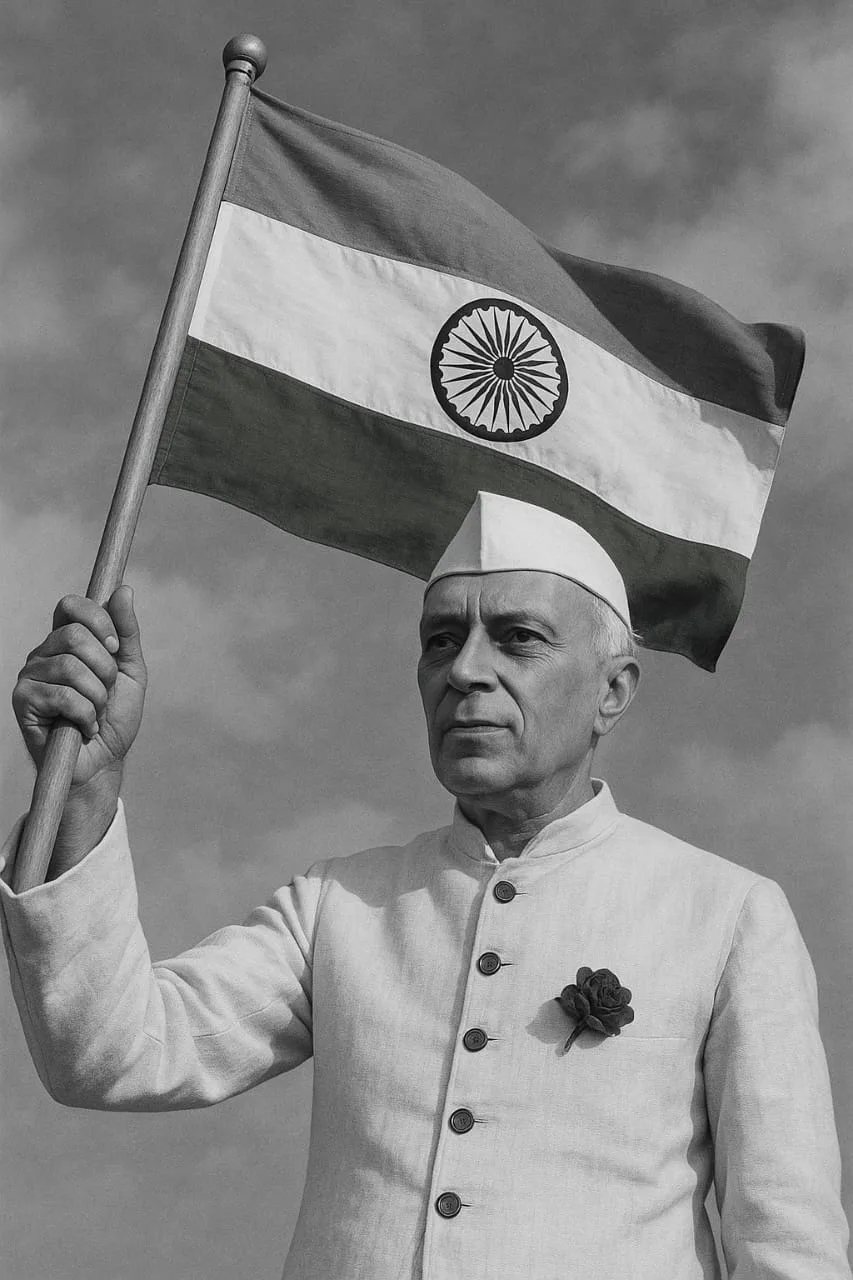| Title | INDIA'S JAWAHARLAL NEHRU |
|---|---|
| Author | MARGARET W. FISHER |
| Category | Studies about Jawaharlal Nehru |
| Number of Pages | 11 |
| Language | English |
| File Size | 465 KB |
| File Type | |
| Country of Publication | US |
| Main Topics | Early Life and Family Background, Education and Intellectual Development, Entry into Politics and Gandhi's Influence, Ideological Evolution and Political Activities (1920s-1930s), Leadership Challenges and Congress Presidency, World War II and Imprisonment, Post-Independence Leadership and Vision, Personal Growth and Legacy, |
Summary Note of this Document
This article is an intellectual and biographical profile of Jawaharlal Nehru, India's first Prime Minister, focusing on his personality, influences, and leadership style rather than a full chronology. Written by Margaret W. Fisher, it explores how Nehru's background shaped his vision for India as a socialist, independent nation, while highlighting his complex relationship with Mahatma Gandhi and his evolving political ideologies. The piece emphasizes Nehru's internal conflicts, commitment to non-violence as a tactic, and fears of fascism, drawing from his writings, speeches, and historical context.
Early Life and Family Background
Jawaharlal Nehru was born on November 14, 1889, in Allahabad to a Kashmiri Brahman family. His father, Motilal Nehru, a successful lawyer, rebuilt the family's fortunes after losses in the 1857-58 uprising. Motilal's agnosticism and Westernized household influenced young Jawaharlal, who grew up in a lively but tense environment, free from strict caste or dietary restrictions. Nehru's childhood was lonely, marked by private tutors and an English governess. He developed early resentment toward British rule but admired individual English people. Influences like the Russo-Japanese War stirred his nationalism. At 15, he was sent to England for education: Harrow (1905-07), Cambridge (Natural Science Tripos, second-class honors), and the Inner Temple (called to the Bar in 1912). There, he absorbed Fabian socialism, sophistication, and a "scientific mind," but his interests leaned toward literature over law.
Entry into Politics and Influence of Gandhi (1910s-1920s)
Returning to India in 1912, Nehru joined Motilal's law practice but found it unfulfilling, viewing life as "pointless." He married in 1916, and his daughter Indira (later Indira Gandhi) was born in 1917. The 1919 Rowlatt Bills and Amritsar massacre (Jallianwala Bagh) radicalized him. Gandhi's Satyagraha movement provided "tremendous relief," offering non-violent action. Nehru joined the Indian National Congress, investigating Punjab atrocities with Gandhi. He embraced non-cooperation, distinguishing it from cowardice, and drew from books like Meredith Townsend's Asia and Europe. In the 1920s, Nehru learned public speaking, witnessed peasant poverty, served jail terms, and held roles like Allahabad municipality president and Congress secretary. A 1926-27 European tour with his wife Kamala Nehru exposed him to intellectuals, the Brussels Congress of Oppressed Nationalities, and Moscow's anniversary, solidifying his socialist leanings but rejecting Communism for Gandhian methods. As Congress President in 1929, he pushed for complete independence.
 |
Ideological Evolution and Conflicts (1930s)
The 1930 Salt Satyagraha was a high point, but Nehru read Marx and Lenin in jail, equating imperialism with capitalism and fascism. He feared India's descent into fascism without socialism. Differences with Gandhi grew: Gandhi favored village self-sufficiency and trusteeship of wealth, while Nehru advocated industrialization under government control. Kamala died in 1936 during European treatment. As Congress President (1936-37), Nehru campaigned massively, discovering India's unity in diversity. A 1938 Europe trip (with Krishna Menon) amid the Spanish Civil War and Munich crisis deepened his anti-fascism. He chaired a National Planning Committee in 1938, prioritizing economic self-sufficiency over trade to avoid imperialism. The 1939 Hitler-Stalin pact shook him; he sought alliance with China against threats. World War II led to his imprisonment after anti-war statements.
World War II, Independence, and Leadership Reflections (1940s-1960s)
In jail (1940-45), Nehru reflected on leadership via B.H. Liddell Hart's Strategy of Indirect Approach, seeing himself as a mediator between truth and public receptivity, not a prophet like Gandhi. Released in 1945, he negotiated independence amid partition. Gandhi named him "political heir" in 1942. Post-1947, Nehru's policies reflected his storehouse of ideas: socialism, non-alignment, and modernization without Western replication. He dedicated his life to uplifting India's masses, blending ancient heritage with modern progress. The article notes his self-awareness, timing, and growth until health failed in 1961; he died in 1964.
Key themes include Nehru's loneliness, intensity, moral courage, and vision of India as a "shining example." Influences: Gandhi (tactics), socialism (goal), anti-fascism (fear). Other highlighted names: Vijaya Lakshmi Pandit (sister), Raja Hutheesing (sister), Annie Besant (Theosophy initiator), Subhas Chandra Bose (Congress rival), Chiang Kai-shek (China outreach), Sidney and Beatrice Webb (Soviet admirers). The piece critiques Western misunderstandings of Nehru and positions him as a bridge between India's past and future.